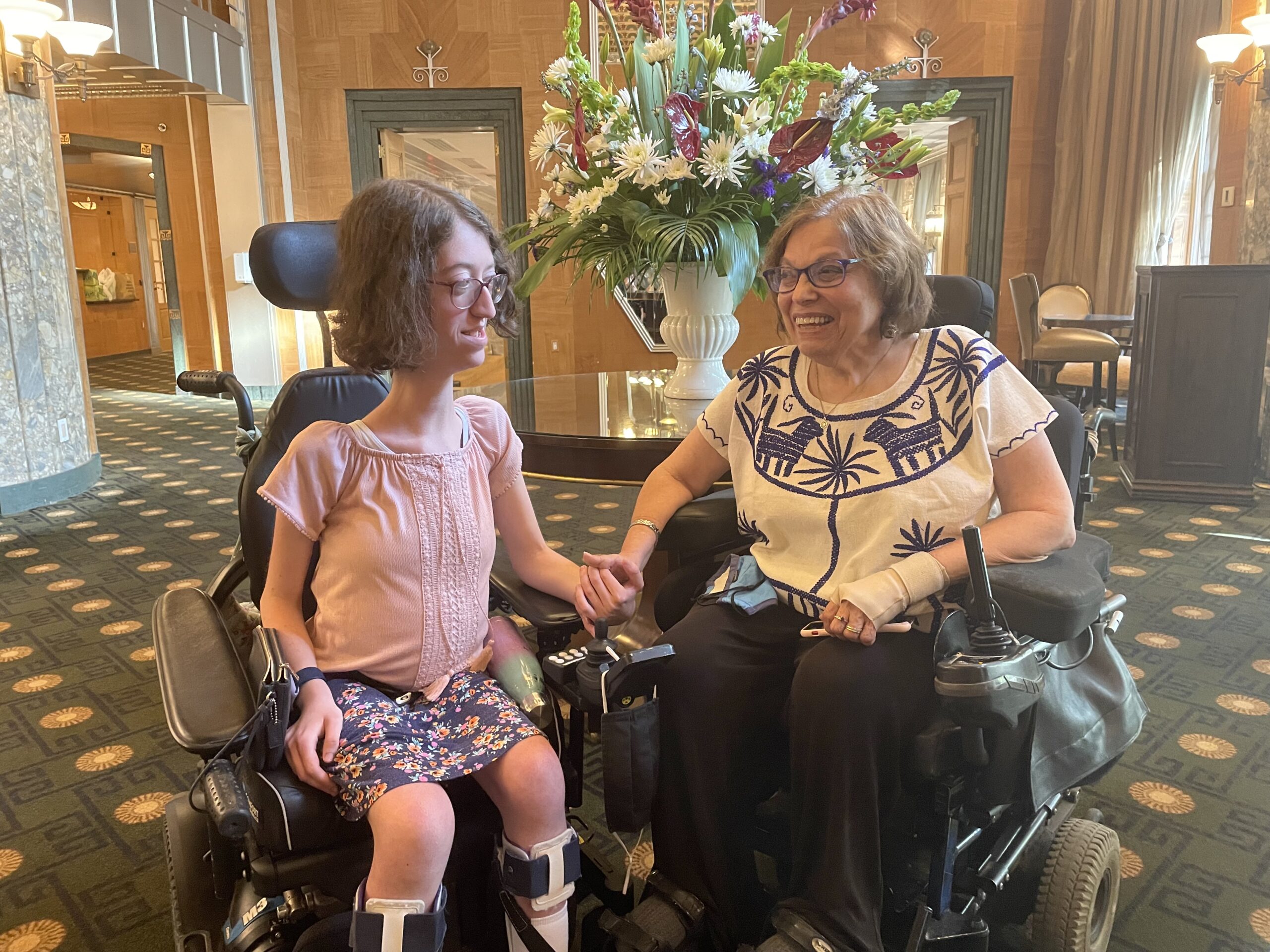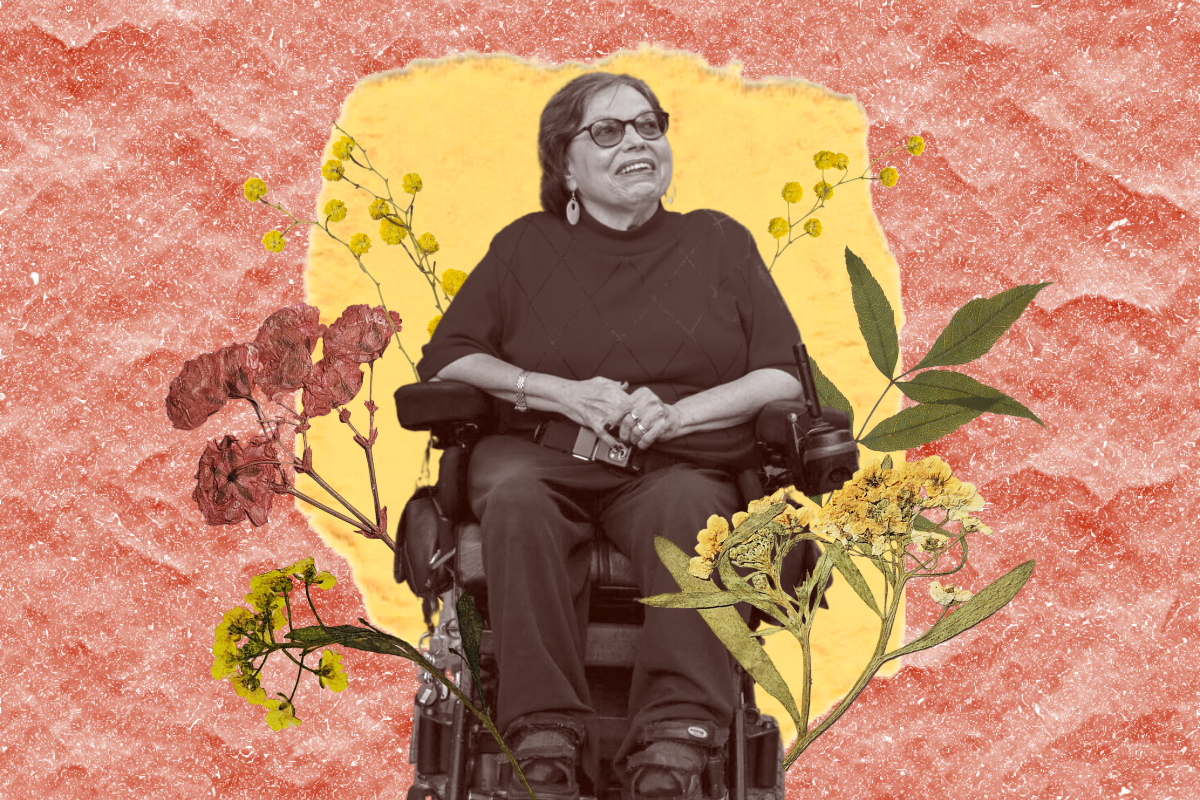It’s not often that you get to meet your heroes, let alone befriend them. But I got to do both with Jewish activist Judy Heumann, widely known as the mother of the disability rights movement. Judy, who passed away earlier this month, changed the world by spending all of her 75 years fighting for accessibility. As a Jewish disabled woman and wheelchair user myself, I would not have nearly as many civil rights and as much access to my community without her efforts.
Judy did not have any children, but she really did give birth to a whole movement. She started off fighting for her own rights, suing New York City when the city wouldn’t let her become a teacher. She then turned to advocating for legislation, spearheading the fight for Section 504 of the Rehabilitation Act, the first federal law to protect the civil rights of people with disabilities. In 1977, Judy helped lead a sit-in at the Department of Health, Education and Welfare (HEW) building in San Francisco that lasted for 26 days, making it the country’s longest sit-in at a federal building to this day. Heumann and a group of protestors ended up traveling to Washington, D.C, where HEW Secretary Joseph Califano eventually signed the 504 regulations Judy had championed into law.
She later entered public service, holding positions in the federal government as President Bill Clinton’s Assistant Secretary of the Office of Special Education and Rehabilitation and President Barack Obama’s Special Advisor on International Disability Rights for the State Department.
As she got older, Judy showed no signs of slowing down. In fact, when I once asked her how she spent her time now that she was retired, she quickly corrected me: Though she’d retired from the federal government, she would not describe herself as retired. This is just one example of the passion she exhibited for improving disability rights.
In recent years, she gained more public attention: She published a memoir, “Being Heumann: An Unrepentant Memoir of a Disability Rights Activist,” and was featured prominently in the award-winning Netflix documentary “Crip Camp”. She also hosted a podcast called “The Heumann Perspective” and served on the board of various disability-focused organizations, including United States International Council on Disability, Disability Rights Education and Defense Fund, and American Association of People with Disabilities.
There’s no question of Judy’s impact on the world I live in — but she also had a profound impact on me personally.

As busy as she was, Judy always made time to mentor the next generation of disability advocates. As one of those aspiring advocates, I am so grateful for my conversations with her. I first interacted with her when she did a virtual talk with my cohort of the American Association of People with Disabilities internship program in 2020. She took the time to answer personal questions during this group Zoom call, even giving out her contact information and encouraging us to be in touch. I then moderated a panel with her in 2021, hosted by Princeton University’s Center for Jewish Life, focused on the intersection of Judaism and disability rights.
From then on, we formed a real connection. Judy and I talked on the phone often as she helped me figure out my journey into the disability rights field when I was preparing to graduate from college. She sent me opportunities that made her think of me and connected me with people whom she thought would make great friends or mentors. She cared deeply about me and wanted me to succeed. She would text me at literally any hour of the day (I don’t know if she ever slept) just to check in. I know I wasn’t alone in this experience. The countless tributes that have come out since her passing prove how much she cherished her relationships with younger members of the disability community. She knew that even though she helped create the disability rights movement, we’d be the ones to continue it, and she did all she could to assist us along the way.
Judy was proud to be Jewish; she was a longtime member of Adas Israel, the synagogue near her Washington, D.C. apartment where I attended her memorial service. She knew that religious spaces were important, and, because of her faith, she pushed her own synagogue and others to better incorporate accessibility into their practices. It meant so much to me to see a successful disabled Jewish woman who was proud of all her identities. Her Jewish faith helped inspire her to give back and improve the world, adhering to the principle of tikkun olam, which also happens to be the principle I try to live my life by.
I last saw Judy in January. I wish I had gotten to say a final goodbye, but I thought I’d see her again — we even discussed potentially celebrating Passover together. All I can do is cherish the time I had with her and fondly remember her kind words and her warm embrace as we hugged each other in our wheelchairs that night. Wheelchair hugs are an always awkward, yet loving and special experience. I’ll miss those hugs, and I’ll miss her, but the world is a much more accessible and inclusive place because of her.



